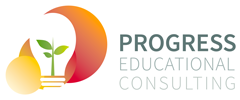Project Description
TARGET AUDIENCE: WHOLE STAFF
Whole School Annual Self Review Day
‘Where did we start, where did we get to, where to now?’
A collaborative inquiry into your year’s impact on student learning outcomes.
The goal: PROGRESS FOR ALL, All of the time.
Knowing our impact before plotting our course
For too long data has been viewed with suspicion by teachers, as well as leaders, as more often than not it has been used as a source of accountability that left educators at odds with school priorities. The intent of this day is to change that view, replacing it with the view that data presents teachers, and schools, with opportunities for growth. This new way of viewing data occurs when teachers are able to:
- determine the annual impact of the school’s teaching practice for all students,
- make evidence informed decisions about the effectiveness of current teaching practice and programs based on achievement and progress data
- make collective decisions about the ‘how’ of teaching and learning for next year.
Straight off the bat it is important to acknowledge that this day can be professionally challenging, particularly if your school culture is not yet one of open and honest dialogue around student learning outcomes. There may be a degree of discomfort for teachers and leaders alike, but calling on the goodwill of staff, we facilitate commitment to a no blame culture where staff are asked to remain open to the possibility of future teaching innovation that an experience like this offers.
Taking your Site Improvement Plan, which has directed school development and resourcing throughout the year, we investigate the degree to which you have collectively delivered on the plan’s goals. The inquiry is based on school generated quantitative and qualitative data that we package so that it invites participation and dialogue. Effect size data that allows for an analysis of student progress, particularity with common data sets such as PAT-Reading, PAT Spelling and PAT-Mathematics, is a priority as it allows for deep collaboration, whole school inquiry and informed decision making. This provides a level of insight well beyond students who are at or above benchmark, as is the case when looking solely at achievement data. (Click here for an A4 outline of the day to share with staff.)
With a clear and collective understanding of the impact of your teaching and learning culture for the year, your school is positioned to move forward strategically. Concluding the day, the opportunities for innovation, based on the review findings from across the day, are identified. These form the basis of your improvement priorities for the coming year.
In their article, Building collective efficacy: How leaders inspire teachers to achieve (2007), Brinson and Steiner highlighted the imperative of teacher beliefs, and collaborative critical reflection, as fundamental to improved student learning outcomes. “Stronger collective (teacher) efficacy encourages individual teachers to deploy the skills they already have more effectively, find new ways to tackle difficult challenges, and share what they know with others.”
“School leaders need to be continually working with their staff to evaluate the impact of all on student progression. Schools need to become incubators of programs, evaluators of impact and experts at interpreting the effects of teachers and teaching on all students.” (Hattie, 2015, What works best in education: the politics of collaborative expertise)
“The reason for engaging in evaluation is to understand program impact in the face of uncertainty. It provides the facts (as best they can be estimated) to help make decisions about how to structure programs, whether they should be expanded, whether they need to be adjusted along the way or whether they need to be stopped altogether.” (Centre for Education and evaluation, NSW state government, 2016, 5 Essentials of effective evaluation)
“Use the data as a starting point for both immediate and longer-term planning and adjustment of instruction explicitly linked to curriculum objectives and tailored to the needs of individual students.” (Hill and Barber, 2014, Preparing for a Renaissance in Assessment)
Teacher teams will engage with summative data that identifies the effectiveness of their collective teaching practice in core areas of the curriculum, both for the current year but also as a trend. This inquiry is conducted in both year level and vertical teaching teams where the ‘butterflies and bullfrogs’ of the current school year; the successes and broad areas of focus for next year, will be identified.
Part of the day will be dedicated to teachers individually reflecting on their class as they analyse each student’s achievement, progress and learning disposition efficacy using PROGRESS Educational templates. This process stimulates personal reflection which may identify areas for professional development, as well as providing important information that supports student handover as they transition to a new teacher in the new year.
This professional learning experience will be successful when you can:
- define the whole school student achievement trends in core areas of the curriculum
- determine the effectiveness of current teaching practice based on student data
- collaboratively identify areas of success and future focus, both at a personal level and whole school level
- support colleagues to engage meaningfully with data as part of high-level professional collaboration as you analyse the school’s impact
- identify each student’s achievement and progress for the school year
Have a question for Travis, or need more info? Let’s chat.
Under no obligation, our preference is to spend time with you prior to delivering professional learning for teachers, or tailored leadership guidance, so that the partnership we develop is unique to your school.
When pursuing PROGRESS FOR ALL, All of the time, we believe time spent planning is time well spent.

